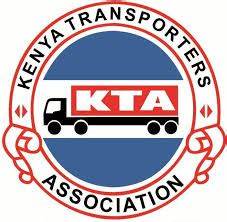Drugs and Alchohol Policy

Introduction
Transaid is committed to providing a work environment free of the abuse of alcohol and the illegal
use of drugs. Our Policy is also a response to the Misuse of Drugs Act (1971).
Policy Aim
This policy is designed to help protect workers from the dangers of drug and other substance
abuse and to encourage those with a drugs problem to seek help.
Application
This policy applies to all staff, volunteers, consultants, staff seconded from other organisations,
trustees of Transaid, and partner organisation.
-
Transaid as a responsible employer, contributing to society’s efforts to combat
drug and alcohol abuseTransaid encourages those with an alcohol or drugs problem to seek help (further information and
a useful website is listed in Appendix A at the end of this policy). Appendix B also list possible
signs that someone may be abusing drugs/ and or alcohol. Transaid acknowledges the need for
confidentiality if an employee admits to an alcohol or drugs problem, subject to the provisions of
the law, and it recognises that an alcohol or drugs problem may be an illness to be treated in the
same way as any other illness. -
Transaid position regarding drugs and alcohol
The unlawful manufacture, distribution, dispensation, possession, or use of a controlled
substance or the unlawful possession and use of alcohol are seen by Transaid as harmful and as
such are prohibited in the organisational work place. No Transaid representative is to report to
work while under the influence of illegal drugs or alcohol.As a condition of employment (voluntary or paid) all prospective Transaid representatives must
abide by the terms of this statement. -
Breach of Policy
Violation of the policies and laws described in this policy by an employee is grounds for
disciplinary action up to and including termination where applicable. Such disciplinary actions also may include reprimand or suspension.Additionally, a violation may be reason for evaluation and treatment of a drug and/or alcohol-use
disorder or referral for prosecution consistent with national law. Disciplinary action by Transaid
does not preclude the possibility of criminal charges against the employee. -
Disciplinary action
If help is refused and/or impaired performance continues disciplinary action is likely. In cases of
gross misconduct dismissal action may be taken. Possession/dealing of drugs will be reported
immediately to the police and there is no alternative to this procedure.If you have any questions about this Drugs and Alcohol policy, please speak to your head of
department.
Code of Conduct and other policies
All Transaid staff, volunteers, consultants, staff seconded from other organisations and trustees
are required to sign and abide by the organisations Code of Conduct and all applicable policies.
Raising concerns
Any person who has concerns about the behaviour of Transaid’s staff, volunteers, consultants,
trustees, partner organisations, staff seconded from other organisations are required to report it
immediately via a senior manager in the organisation. If the concern is about the line manager
then the next person in the line management hierarchy must be alerted. All information relating to
the concerns raised must be kept confidential to the person raising the concern, to the person
who this has been reported and any person involved in an investigation.
All claims will be fully investigated and will involve, where appropriate, senior manager, specialist HR and/or the Safeguarding Officer to ensure it is undertaken in the most sensitive and
appropriate manner. Please see Transaid’s Disciplinary and Grievance procedure for more
information.
If an individual has concerns about the repercussions of reporting an issue, Transaid also has a
Whistle Blowing policy that guarantees anonymity when raising concerns.
APPENDIX A – Further information and resources
Information on Health Risks
Alcohol consumption causes a number of marked changes in behaviour. For example; even low
doses of alcohol significantly impair the judgment and coordination required to drive a car safely,
increasing the likelihood that the driver will be involved in a crash. The use of alcohol by a
pregnant woman can damage the foetus. Low to moderate doses of alcohol also increase the
incidence of a variety of aggressive acts.
The use of illegal drugs and the abuse of prescription and other drugs also pose a serious threat
to health. The use of marijuana (cannabis) may cause impairment of short-term memory,
comprehension, and ability to perform tasks requiring concentration. Marijuana use also may
cause lung damage, paranoia, and possible psychosis. The use of narcotics, depressants,
stimulants, and hallucinogens may cause nervous system disorders and possible death as the
result of an overdose. Illicit inhalants can cause liver damage.
More Information
Detailed information about alcohol consumption, the use of illegal drugs, and the abuse of
prescription and other drugs is available from www.talktofrank.com
APPENDIX B – Potential indicators of drug abuse
- sudden mood changes
- unusual irritability or aggression
- a tendency to become confused
- abnormal fluctuations in concentration and energy
- impaired job performance
- poor time-keeping
- increased short-term sickness absence
- a deterioration in relationships with colleagues, customers or management
- dishonesty and theft (arising from the need to maintain an expensive habit)
Remember: all the signs shown above may be caused by other factors, such as stress,
and should be regarded only as indications that an employee may be abusing drugs.









